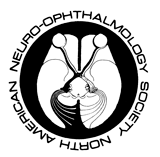Register Today
Learn more about meeting registration.

In conjunction with the North American Neuro-Ophthalmology Society (NANOS)
Neuro-Ophthalmology 2024: When Should I Worry? The Pearls and Pitfalls of Tests and Diagnoses in Neuro-Ophthalmology
Friday, Oct. 18
McCormick Place, Chicago, IL
Breakfast will be served for in-person attendees at 7 a.m. Pacific Daylight Time. The program will start at 8 a.m. Central Standard Time.
Program Directors
Peter A. Quiros, MD
Madhura A. Tamhankar, MD
Program Planning Group
Eric L. Berman, MD
Chantal Boisvert, MD
John J. Chen, MD, PhD
Michael Dattilo, MD
Kathleen B. Digre, MD
Valerie I. Elmalem, MD
Courtney E. Francis, MD
Kimberly K. Gokoffski, MD
Lynn K. Gordon, MD, PhD
Guy V. Jirawuthiworavong, MD
Sachin Kedar, MD
Andrew G. Lee, MD
Collin M. McClelland, MD
Andrew Melson, MD
Jason H. Peragallo, MD
Peter A. Quiros, MD
Madhura A. Tamhankar, MD
Program
View the schedule in the AAO 2024 Meeting Guide. Click the Program button on the homepage, then select Program Search. Choose among the Subspecialty Day meeting options under the "Filter by Meeting" drop-down menu. You can select multiple filters/meetings.
Mission Statement
The mission of the 2024 AAO-NANOS Neuro-Ophthalmology Subspecialty Day is to provide new, updated, and clinically relevant neuro-ophthalmic information that will assist the practicing ophthalmologist to identify critical findings and to differentiate them from potential distractors to make an accurate diagnosis and determine management strategies based on best practices.
Target Audience
The intended audience for this program is comprehensive ophthalmologists.
Education Level
Beginner, intermediate, and advanced concepts will be discussed to offer sufficient breadth and depth to the target audience.
Program Objectives
Upon completion of this activity, participants should be able to:
-
Recognize the strengths and weaknesses of OCT imaging in neuro-ophthalmology.
-
Differentiate the sensitivity and specificity of laboratory markers for the diagnoses of vision threatening conditions such as giant cell arteritis, neuromyelitis optica, myasthenia gravis and optic neuritis.
-
Order the correct neuro-imaging modality for various conditions involving the brain and orbit.
-
Distinguish findings on neuroimaging and correlate clinically with the presenting condition.
-
Discuss surgical approaches to the orbit.